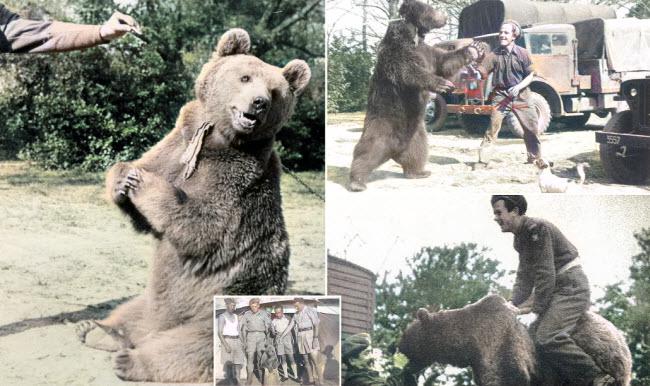Animals are not only featured in scientific books that describe their characteristics and natural habitats, but some have also found their way into the pages of history books as heroes. These remarkable animals earned recognition and respect through their extraordinary deeds. For example, there’s Balto the husky, who helped transport a life-saving serum over a thousand kilometers across Alaska in harsh weather. Then there’s Laika the dog, the first living being to travel to space, marking humanity’s entry into a new era beyond Earth’s boundaries. Dolly the sheep was the first mammal to be cloned successfully, and Wojtek the bear became a symbol of luck and morale for the Polish troops during World War II, not only by being with them but also by participating in battles and assisting soldiers in carrying ammunition.
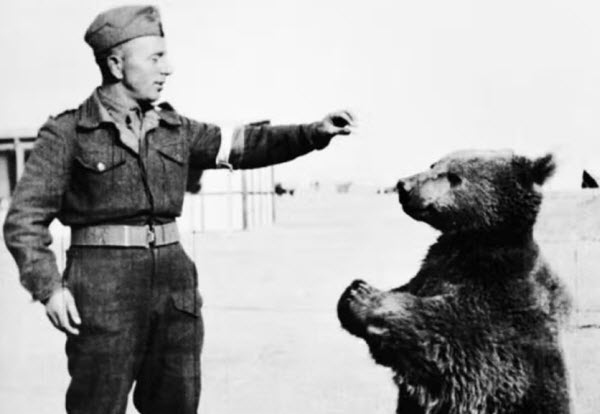
As World War II erupted, Poland faced significant challenges, beginning with the invasion of its territory by Germany in September 1939, followed by a Soviet invasion. The country became a victim of a secret agreement between Adolf Hitler and Joseph Stalin. After the Nazis breached their pact, the Soviets allowed the Poles to form their own army on Soviet soil, known as the Second Polish Corps, under the command of General Władysław Anders. In the spring of 1942, this newly formed army left the Soviet Union for Iran, alongside thousands of Polish civilians released from Soviet labor camps. There, the Poles encountered an Iranian boy in the town of Hamadan who had a bear cub. The cub’s mother had been shot by hunters, leaving it orphaned. Fascinated by the bear cub, a Polish woman named Irena Bokiewicz convinced a soldier to buy it for a few cans of food. The bear cub spent the next three months in a Polish refugee camp near Tehran before being donated to the 22nd Artillery Supply Company. The soldiers named him “Wojtek,” which means “happy warrior” in Polish.
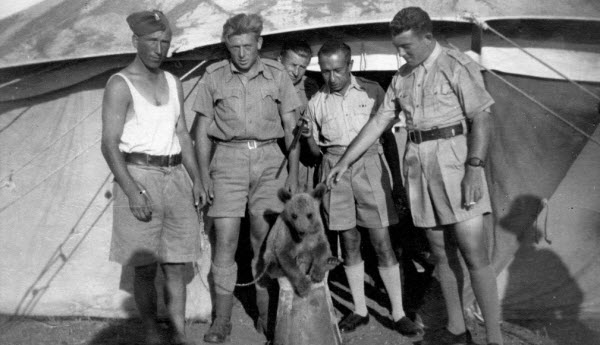
Wojtek soon became an integral part of the company, traveling with the Second Polish Corps as they moved across the Middle East. When the unit joined the British 3rd Carpathian Division in Palestine, Wojtek developed some unusual habits. He drank milk from an old vodka bottle and even enjoyed beer and wine. He smoked cigarettes with the soldiers and playfully wrestled with them, just like any other comrade. The soldiers also taught him how to salute new recruits by grabbing them by their boots, giving them the impression he might eat them. He learned to shake hands and chase oranges that the soldiers used for grenade-throwing practice. Wojtek even figured out how to break into the communal showers and turn them on, much to the frustration of the unit, as water was rationed. Over time, Wojtek became a source of joy and optimism among the troops in the midst of war.
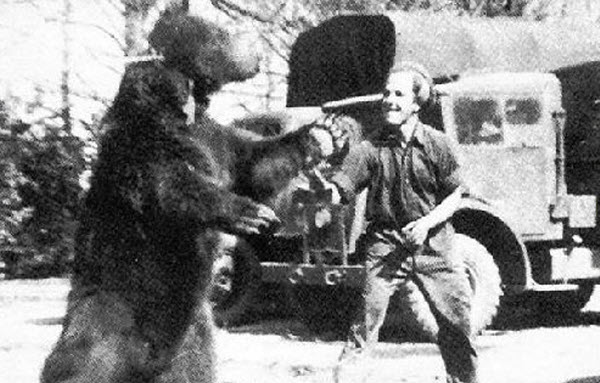
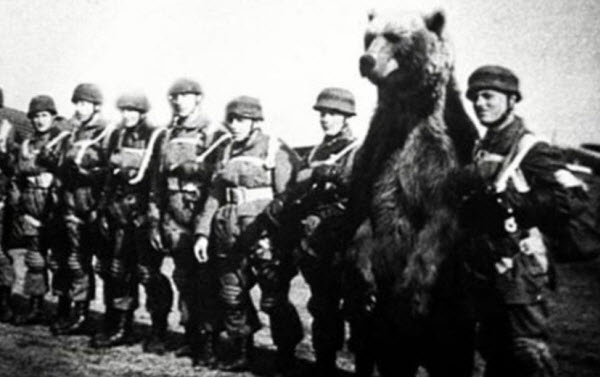
When the unit moved from Palestine to Egypt, they faced a problem with Wojtek’s presence. As they prepared to board a ship for the Allied campaign in Italy, officials at the port of Alexandria refused to let Wojtek board because he wasn’t officially part of the army. In a quick solution to this issue, the soldiers officially enlisted Wojtek into the Second Polish Corps, giving him a rank, a service number, and a paybook to formalize his status. Two soldiers were assigned to care for him, and Wojtek was allowed to join them on the ship, this time as a legitimate member of the Polish army. By the time the unit arrived in Italy, Wojtek had grown from a cub into a fully grown bear. To make the most of his size and strength, the company trained him to carry crates of mortar shells weighing 45 kilograms (around 99 pounds). It’s said that he performed this task without fail during the bloody Battle of Monte Cassino. Not only did Wojtek survive the front lines, but he also earned a legendary status among the soldiers for his bravery. His actions prompted the Polish High Command to promote him to the rank of corporal and make him the official mascot of the 22nd Artillery Supply Company, with an emblem of a bear carrying a shell. Wojtek’s fame grew further, with visits from Allied generals and statesmen.
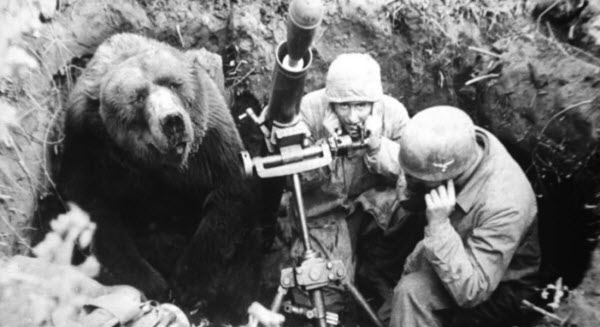
When the war ended in 1945, Polish troops were demobilized worldwide, but Wojtek’s future was uncertain. A political tug-of-war ensued as his caretakers did not want him to return to Poland. They feared the newly Soviet-controlled government might use Wojtek as a symbol of communism, contrary to what the Polish troops had fought for. Instead, Wojtek was taken to Scotland, where he lived in a village called Hutton in Berwickshire. He stayed at a farm with other former Polish fighters temporarily. Wojtek was celebrated, fed treats like honey and jam, played football, and attended local dances and children’s parties. He was treated almost like a human, and the Polish-Scottish Association even made him an honorary member. Later, he moved to Edinburgh Zoo, where reports indicated that he would perk up whenever he heard visitors speaking Polish. Wojtek lived out his final years there until he passed away on December 2, 1963, at 21. By then, he was over 1.8 meters tall (about 6 feet) and weighed 500 kilograms (around 1100 pounds). He was honored with a bronze statue in Scotland in 2005.
This unique bear, who fought alongside soldiers and became a symbol of hope and camaraderie, is remembered as more than just an animal; he was a true hero of history.
